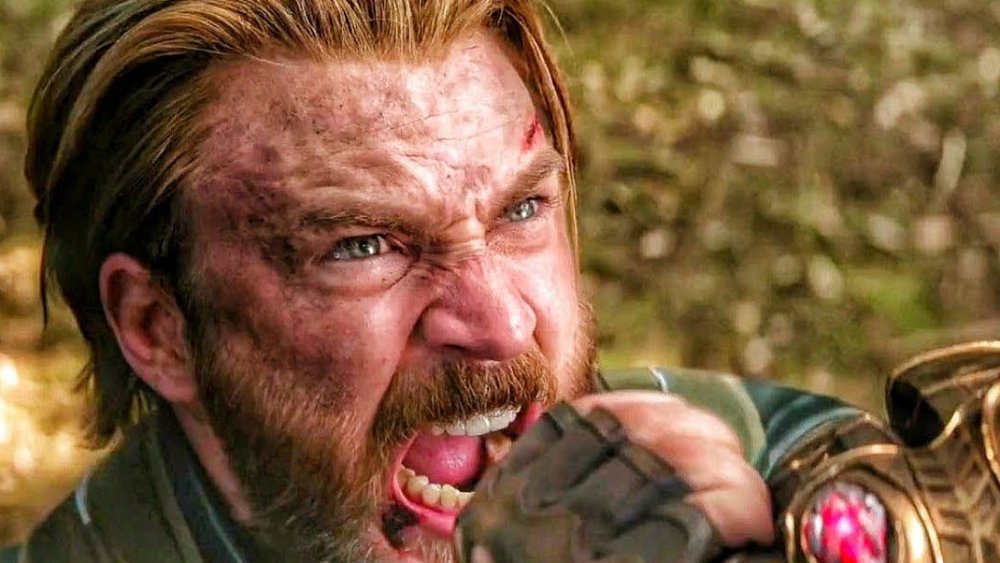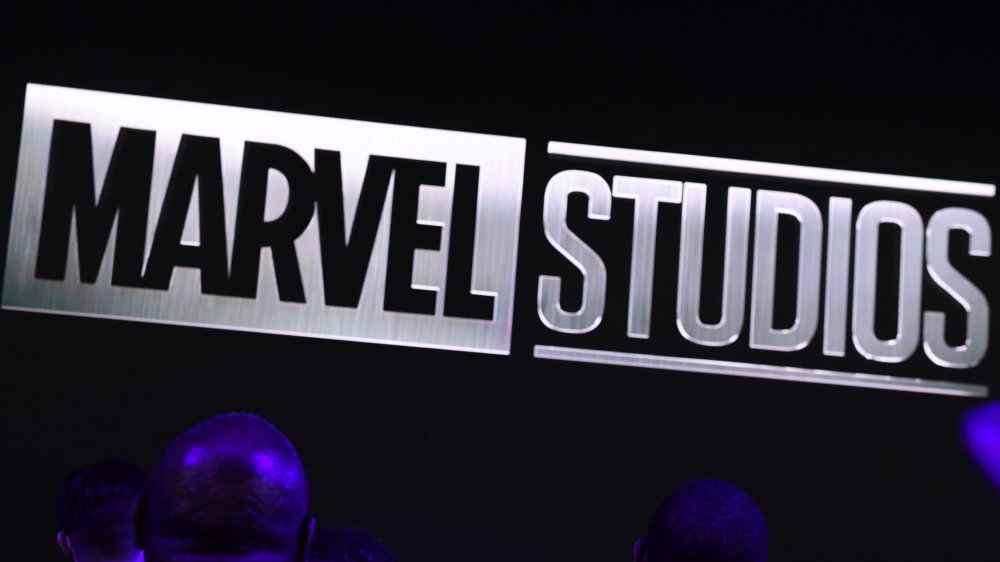Martin Scorsese And Bob Iger Take New Shots At Each Other Over Marvel Movies
Martin Scorsese ruffled more than a few feathers when he stated in October 2019 that the hugely popular Marvel movies "aren't cinema." Given that the 23 Marvel films released thus far have collectively grossed over $22.5 billion globally, it's safe to say there are millions of people who don't agree with him. But even so, Scorsese's reputation in Hollywood adds some weight to the punch. Plenty of people involved in the Marvel Cinematic Universe have defended the films in spite of Scorsese's comments — and the latest response has come from Disney CEO Bob Iger himself.
Speaking to the BBC in a radio interview, Iger threw shade at Scorsese, saying he doubted the Wolf of Wall Street director has ever even watched a Marvel film.
"Martin Scorsese is a great filmmaker. I admire him immensely. He's made some great films. I would debate him on this subject. First of all, Marvel's making movies. They're movies. That's what Martin Scorsese makes. And they're good movies," said Iger. "I don't think he's ever seen a Marvel film. Anyone who's seen a Marvel film could not in all truth make that statement."
Iger, however, appears to want to find a common ground with Scorsese and hash it out. How does one do that, you ask? With the offer of a glass of wine, of course. "I'd like to have a glass of wine with him," Iger shared, adding that he actually likes Scorsese and thinks "he's a talented man" (via Variety).
The MCU hits back
Others in the MCU who responded to Scorsese's comments include Samuel L. Jackson, who plays Nick Fury in the superhero franchise. The actor was surprisingly PG in his comments, saying, "That's like saying Bugs Bunny ain't funny. Films are films. Everybody doesn't like his stuff either."
James Gunn, who directed both Guardians of the Galaxy and Guardians of the Galaxy Vol. 2, was absolutely gutted by Scorsese's comments, taking to Twitter to share his disappointment. "Martin Scorsese is one of my 5 favorite living filmmakers. I was outraged when people picketed The Last Temptation of Christ without having seen the film. I'm saddened that he's now judging my films in the same way," wrote Gunn, who later clarified that he wasn't "talking about the reaction or the type of reaction but simply people making judgments on films without seeing them."
Another Marvel director, Avengers helmer Joss Whedon, came out in support of Gunn, pointing out that he had "packed his heart and guts into Guardians of the Galaxy."
Robert Downey Jr., the actor behind the beloved Tony Stark, also spoke up about Scorsese's remarks, but was surprisingly unfazed. "I appreciate his opinion because I think it's like anything. We need all of the different perspectives so we can come to center and move on," he said while speaking on The Howard Stern Show. Downey Jr. also scoffed at the idea that Scorsese was jealous of the success of Marvel films over the last decade as a potential explanation for his criticism.
Martin Scorsese views cinema as an art form
Despite the negative response his statements have garnered, Scorsese isn't backing down. In fact, he has doubled down on his original comments, comparing Marvel movies to theme park attractions. Most recently, the esteemed director explained his remarks in a New York Times op-ed.
"When I was in England in early October, I gave an interview to Empire magazine. I was asked a question about Marvel movies. I answered it. I said that I've tried to watch a few of them and that they're not for me, that they seem to me to be closer to theme parks than they are to movies as I've known and loved them throughout my life, and that in the end, I don't think they're cinema," Scorsese wrote in part. "Many of the elements that define cinema as I know it are there in Marvel pictures. What's not there is revelation, mystery or genuine emotional danger. Nothing is at risk. The pictures are made to satisfy a specific set of demands, and they are designed as variations on a finite number of themes."
Scorsese did attempt to explain that particular slap in the face. He clarified that while there are plenty of incredibly talented people involved in the creation of "franchise films, they simply don't interest him. For Scorsese, it's a "matter of personal taste and temperament."
The director, who was born in 1942, has pointed the finger at his birth year and age for his disinterest in comic book films, as well as the dramatic shift in filmmaking practices that has taken place from his youth.
"For me, for the filmmakers I came to love and respect, for my friends who started making movies around the same time that I did, cinema was about revelation — aesthetic, emotional and spiritual revelation. It was about characters — the complexity of people and their contradictory and sometimes paradoxical natures, the way they can hurt one another and love one another and suddenly come face to face with themselves," he wrote, adding that Alfred Hitchcock's movies were the closest thing to a "franchise" his generation ever experienced
Scorsese continued, "[Cinema] was about confronting the unexpected on the screen and in the life it dramatized and interpreted, and enlarging the sense of what was possible in the art form. And that was the key for us: it was an art form."
He also accuses franchises like the MCU of killing independent cinema
While Scorsese concedes that many elements of his definition of cinema are found in Marvel films, in his opinion, the franchise lacks the aspects he feels are integral to filmmaking. For Scorsese, it's not about the fact that the public wants or likes Marvel movies — it's about the fact that directors want their films on the big screen, and the increasing number of franchise films that are being released is making it more and more difficult for independent pictures to make it to theaters.
"There's worldwide audiovisual entertainment, and there's cinema. They still overlap from time to time, but that's becoming increasingly rare. And I fear that the financial dominance of one is being used to marginalize and even belittle the existence of the other," Scorsese explained.
It's safe to say Scorsese isn't only taking shots at the MCU, but much of today's film making in general. He went on to call modern cinema "market-researched, audience-tested, vetted, modified, re-vetted, and re-modified until they're ready for consumption."



